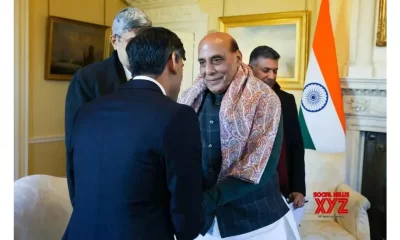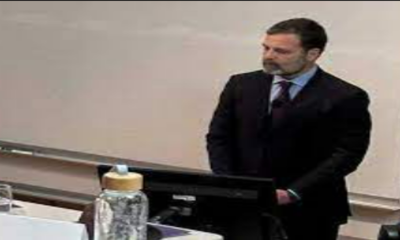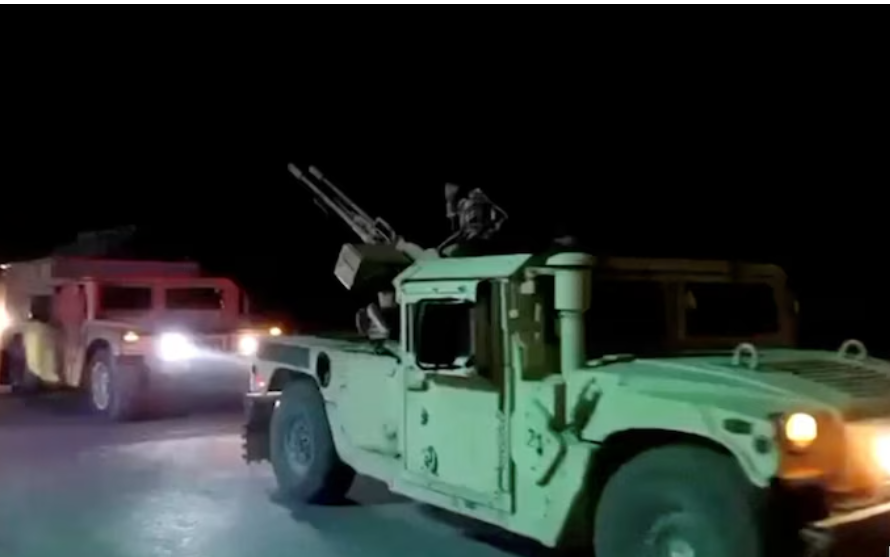[vc_row][vc_column][vc_column_text]By: Saeed Naqvi
The recent rise in the electability of Labour Party leader Jeremy Corbyn as Britain’s next Prime Minister, according to the latest opinion polls, has not made headline news. This is not surprising because Establishments everywhere, of which the media is a part, imagine that an idea can be made to vanish by playing it down.
The findings of the poll have been published even in conservative newspapers like The Telegraph in London. This virtually amounts to a taboo being lifted from the idea of Corbyn. Call it acquiescence, if you like.
Senior Labour leaders, indeed authors of New Labour, like Tony Blair and Lord Peter Mandelson must be close to a nervous breakdown. Or, they must be working very hard, as Mandelson has admitted in interviews, to “undermine Corbyn”.
The difficulty with mean-minded cribbing by Mandelson is that it generates sympathy among Corbyn’s growing tribe of supporters. Take this quote from a Labour member: “The idea that Jeremy Corbyn as Prime Minister implementing policies that actually benefit the people terrifies the Establishment. It is no surprise that Mandelson has found space in his busy schedule for spending time on Oligarch’s Yachts to attempt to undermine Jeremy.”
This being the tone of the exchange, Corbyn’s path to eventual success will be made ever more difficult by the Establishment of which Mandelson and the Deep State are parts.
There is, however, a tailwind of recent history particular to Britain, which may be helping Corbyn.
Accelerated globalization after the Soviet collapse, was a shot in the arm for capitalism. This, in its turn, generated arbitrary inequalities which erupted in such movements as “Occupy Wall Street”. The Republican Tea Party was the immediate counter punch.
The popular will adapts to changing climate. Establishments, obstinately resistant to change, begin to strategize: how to channelize or thwart the popular will.
In almost all western democracies the conflict is on: Establishments vs. the people. A Left wing Syriza brought 43 year old Alexis Tsipras to power as Prime Minister of Greece. Germany and the EU broke the movement’s will. Revert to austerity or we shall not pick up your debts.
In Spain, where the ghost of Franco still hovers over public life, Prime Minister Mariano Rajoy of the Right Wing Peoples Party, supervised over such unspeakable corruption (another gift of globalization), that a new communist-inclined party Podemos, under the leadership of 39 year old Pablo Iglesias, burst upon the scene. The resulting stalemate between the Peoples Party, Socialist and Podemos led to a repeat election which yielded more or less the same configuration. The Establishment worked overtime. On the pain of being decimated, Socialists allowed themselves to be persuaded to abstain in a Parliamentary vote. This enabled the corrupt PP hold onto power. The idea is to weaken and eventually erase Podemos by sheer attrition and election fatigue.
In the process of warding off unfriendly political trends, the establishment learnt another lesson. The sprinkling of leaders breaking out of the two party suffocation were all anti austerity, leftists and in their 30s and 40s. Why could not the “right” respond with similar décor and aspirations?
That exactly is what has been attempted in Spain by launching Ciudadanos, (Citizens) a centrist party with an unusual rise on an anti corruption platform. I met people in Madrid and Barcelona who described the new party as “Podemos of the right”. In terms of youth, Ciudadanos is an improvement. Its leader, Albert Rivera, 35, is four years younger than Pablo Iglesias.
“They are stealing Podemos’ aesthetics” laments Madrid’s Communist Mayor who hung a giant placard outside her office: “Refugees Welcome”. She tweets “We are not going to criminalize the Muslim community” Carmena said. “The response to terror must be solidarity.” Her punchline was “co existence = safer cities”.
The aesthetics which define young leaders in Greece, Spain, Canada appear to have been grafted on France’s Emmanuel Macron too. He is their age and talks of influencing the EU to reduce the burden of austerity. The scale of his success has encouraged him to be openly ambidextrous. He has invited Donald Trump to the National Day parade on July 14. This despite Trump having withdrawn from the Paris accord on climate change.
In brief, different kinds of gyrations define western democracies today. In this over all confused picture another reality remains largely unnoticed.
A Fox News poll published some months ago (mostly ignored) shows that Bernie Sanders has a +28 rating above all US politicians on both ends of the political spectrum.
The Guardian’s Trevor Timm wrote recently: “One would think with numbers like that, Democratic politicians would be falling all over themselves to be associated with Sanders, especially considering the party as a whole is more unpopular than the Republicans and even Donald Trump right now. Yet instead of embracing his message, the Establishment wing of the party continues to resist him at almost every turn, and they seem insistent that they don’t have to change their ways to gain back the support of huge swaths of the country.”
The moral of the story is this: a rattled Establishment is in many democracies rushing to thwart or redirect the popular will – and with mixed success.
Against this backdrop, there appears on the horizon a certain British exceptionalism. Jeremy Corbyn’s election as Labour leader despite Tony Blair, Mandelson, and the Parliamentary party, results of the Brexit referendum, the manner in which Theresa May was trounced in June 8 elections – all point to the Establishment in Britain unlike elsewhere, clearly contained by the people.[/vc_column_text][/vc_column][/vc_row]

























